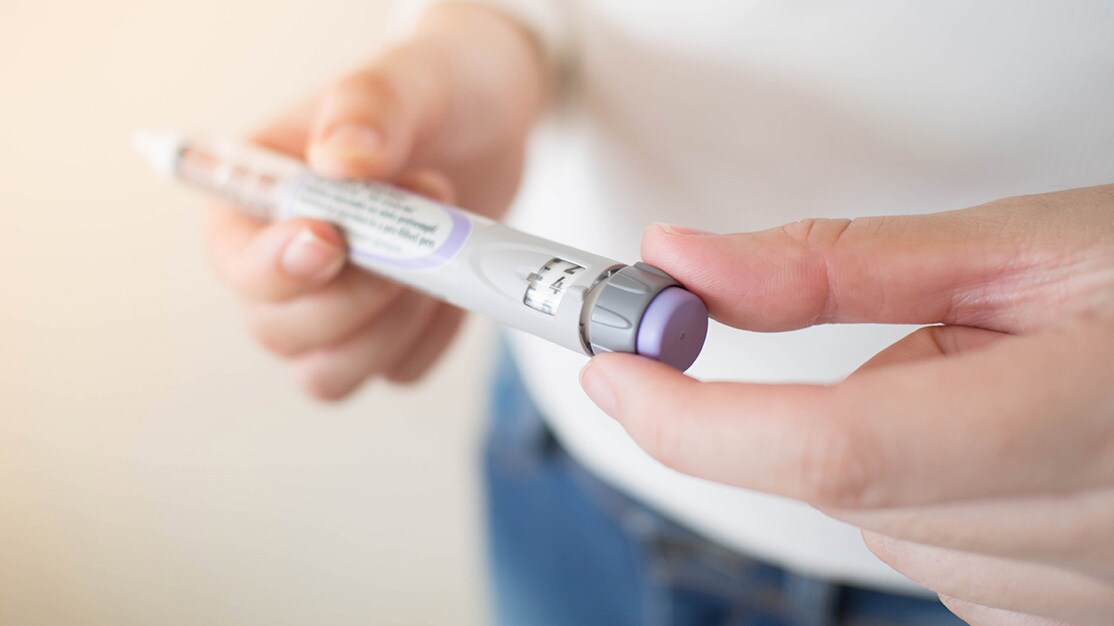Diabetes insulin
Professor of Pharmacy & Global Health
University of Washington
Clinically reviewed by Rebeca Thomas, RN, BSN, CPHQ

What is insulin?
Insulin is a naturally occurring hormone made by your pancreas that regulates the amount of sugar (glucose) in your blood. Insulin helps glucose enter your cells so it can be used for energy and helps keep your blood sugar level from getting too high (hyperglycemia).
Is high blood sugar bad for my health?
Having high blood sugar for a long period can permanently damage parts of your body. It can cause serious health problems, such as heart disease, blindness, nerve damage, and kidney damage.
What happens to insulin production when you have diabetes or prediabetes?
Type 1 diabetes happens when your body no longer makes insulin. Type 1 diabetes was once commonly known as insulin-dependent diabetes.
Prediabetes and type 2 diabetes happens when your body does not use insulin effectively or doesn't make enough insulin.
What is type 1 diabetes (insulin-dependent diabetes)?
Insulin-dependent diabetes happens when your body can no longer make enough insulin. All people with type 1 diabetes require insulin replacement. People with more advanced type 2 diabetes may also require insulin replacement. Replacement insulin helps prevent complications linked with diabetes by keeping your blood sugar within its target range.
If I need replacement insulin, what are the different types of insulin available?
There are different types of insulin depending on how quickly they work, when they peak, and how long they last. Your health care provider will help you find the right type of insulin for your health needs and your lifestyle. You may also be prescribed more than one type of insulin.
The many types of insulin vary based on the following characteristics:
- How long the insulin takes to begin lowering blood sugar (onset)
- When the insulin reaches its maximum effect in terms of lowering blood sugar (peak)
- How long the insulin continues to lower blood glucose (duration)
According to the American Diabetes Association, these are the different types of insulin available:
- Rapid-acting: starts to work within a few minutes and lasts for a couple of hours.
- Regular or short-acting: usually reaches the bloodstream within 30 minutes after injection. It peaks anywhere from 2 to 3 hours after injection, and lasts for about 3 to 6 hours.
- Intermediate-acting: generally reaches the bloodstream about 2 to 4 hours after injection, peaks 4 to 12 hours later, and can last for up to 18 hours.
- Long-acting: reaches the bloodstream several hours after injection and can work up to an entire day.
- Ultra long-acting: reaches the blood stream in 6 hours, does not peak, and lasts about 36 hours or longer.
- Inhaled: begins working within 12 to 15 minutes, peaks by 30 minutes, and is out of your system in 180 minutes. It is not a substitute for long-acting insulin and must be used as directed by your health care provider.
What is an insulin pump?
An insulin pump is a small, computerized device that delivers insulin through a thin tube placed under your skin. You can place the thin tube in an area on your body with fatty tissue such as your belly, buttock, thigh, or upper arm. Insulin pumps deliver insulin doses in two ways:
- As a steady measured and continuous dose of insulin, and
- As a burst of insulin close to mealtime to control the rise in blood sugar after a meal.
There are different kinds of insulin pumps available. You can talk to your health care provider to decide if an insulin pump is the right choice for you. But remember, even with an insulin pump, it is important for you to continue to check your blood sugar levels on a regular basis.
Published on May 25, 2020
References
https://www.diabetes.org/diabetes/medication-management/insulin-other-injectables/insulin-basics
https://www.diabetes.org/diabetes/medication-management/insulin-other-injectables
https://www.cdc.gov/diabetes/basics/type1.html
https://www.mayoclinic.org/diseases-conditions/diabetes/in-depth/insulin/art-20050970
https://www.mayoclinic.org/diseases-conditions/diabetes/in-depth/diabetes-treatment/art-20044084
https://www.mayoclinic.org/diseases-conditions/type-1-diabetes/multimedia/insulin-pump/img-20006962
https://www.diabetes.org/diabetes/device-technology/who-should-use-a-pump
https://www.jdrf.org/t1d-resources/daily-management/insulin-delivery-methods/